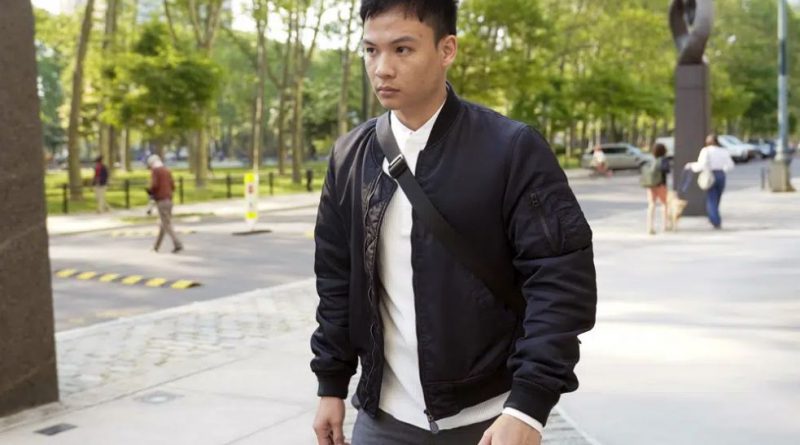3 men convicted in US trial that scrutinized China’s ‘Operation Fox Hunt’ repatriation campaign
New York (AP) — Three men were convicted of various charges Tuesday in a trial showcasing U.S. claims that China has engineered pressure campaigns on American soil to bully expatriates into returning home, as part of an effort called “Operation Fox Hunt.”
American private investigator Michael McMahon and two Chinese citizens living in the U.S. — Zheng Congying and Zhu Yong — all were accused of taking part in scare tactics aimed at a former Chinese official. He was living quietly in New Jersey, and Beijing wanted him back.
Zhu was convicted of acting as an illegal foreign agent, stalking, and conspiracy to commit stalking and to act as an illegal foreign agent. Zheng was convicted of stalking and stalking conspiracy but acquitted of the other charges.
McMahon was convicted of all except conspiracy to act as a foreign agent. No sentencing date has been set for the three, who face potential maximum sentences ranging from 10 years for Zheng to 25 for Zhu.
The Brooklyn federal court trial was the first to result from a spate of U.S. prosecutions scrutinizing China’s “Operation Fox Hunt,” a nearly decade-old initiative that Beijing characterizes as a pursuit of fugitives, including corrupt officials. U.S. authorities view it, at least sometimes, as an exercise in “transnational repression,” or deploying government operatives to harass, threaten and silence critics living abroad.
“We will remain steadfast in exposing and undermining efforts by the Chinese government to reach across our border and perpetrate transnational repression schemes,” Brooklyn-based U.S. Attorney Breon Peace said in a statement after the verdict.
China has denied trying to force repatriations through intimidation and says the U.S. is maligning an effort to fight crime.
Prosecutors say pressure from Beijing was brought to bear in suburban New Jersey, where former Wuhan city official Xu Jin and his family moved in 2010. China has accused him and wife Liu Fang of taking bribes; they deny it and say they were targeted because he got crosswise with China’s Communist power structure.
According to prosecutors, Zhu, Zheng and McMahon took part in a yearslong, multipronged effort to goad Xu into going back to China. The country couldn’t officially compel him to do so, as it has has no extradition treaty with the U.S.
The defense acknowledged that Zhu, Zheng and McMahon took various actions but said the three had no idea that Beijing was allegedly behind it all.
“If I had known for one second that they were a foreign country, a foreign government, hiring me, I would never have worked the case,” McMahon said after being “devastated by the verdict.” His lawyer, Lawrence Lustberg, said he would challenge the conviction and was confident that “this injustice will not survive the scrutiny that the legal system will give it.”
Zhu’s lawyer, Kevin Tung, said he believed the defendants were unknowingly used. The U.S. should have educated them on how to be alert, rather than prosecuting them, he said in an email.
“The message sent to the public is very troubling,” Tung wrote, predicting that any American with a foreign friend who requests a favor will have to try to figure out whether the friend is a government agent.
A message seeking comment was sent to Zheng’s attorney.
McMahon, 55, a former New York City police sergeant, conducted surveillance and data searches to smoke out Xu’s carefully guarded address and information about his loved ones. Zhu, 66, a retiree who also goes by Jason Zhu and Yong Zhu, helped hire McMahon and equip him with details to get started.
Zheng, 27, later went to Xu’s home and left an ominous note: “If you are willing to go back to the mainland and spend 10 years in prison, your wife and children will be all right. That’s the end of this matter!”
“Before I saw this, I felt that the threats from the Chinese Communist Party was only a mental threat to me. However, when I saw that note, I realized that it had become a physical threat,” Xu testified, through a court interpreter.
The defense said McMahon, Zheng and Zhu were told they were helping to collect a debt or achieve some other end for a company or individuals — not for China.
The trial unfolded at a fraught time in U.S.-China relations. The two powers have been at odds in recent years over a growing list of issues: trade, industrial espionage, human rights, Taiwan, the South China Sea, Russia’s war against Ukraine, U.S. allegations of Chinese spying, and Washington’s claims that Beijing is tracking and harassing dissidents overseas.
The two nations said they made some progress toward improving relations in recent days, when U.S. Secretary of State Antony Blinken visited Beijing for talks with Chinese President Xi Jinping and top diplomats. But it remains unclear whether the countries will be able to bridge their biggest divides.
U.S. prosecutors have brought several criminal cases involving alleged Operation Fox Hunt endeavors. In one, a pregnant U.S. citizen was held in China for eight months and pressured to persuade her mother to return to the country, prosecutors said.
Zheng, McMahon and Zhu were charged alongside eight other people also accused of harassing Xu, the former Wuhan official. Three have pleaded guilty; five are believed to be in China.
Prosecutors said the arm-twisting included derogatory Facebook messages to friends of Xu’s adult daughter and an onslaught of letters to a relative in New Jersey.
At one point, a Chinese prosecutor even flew Xu’s unwilling, octogenarian father to New Jersey to lean on his son to return to their homeland, according to prosecutors and trial testimony.



